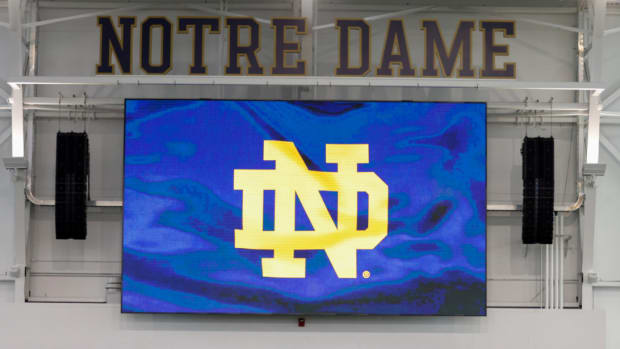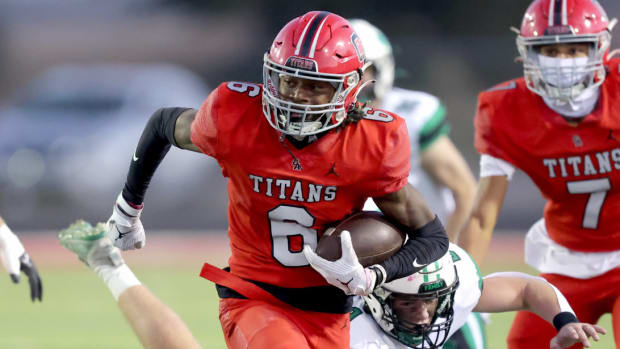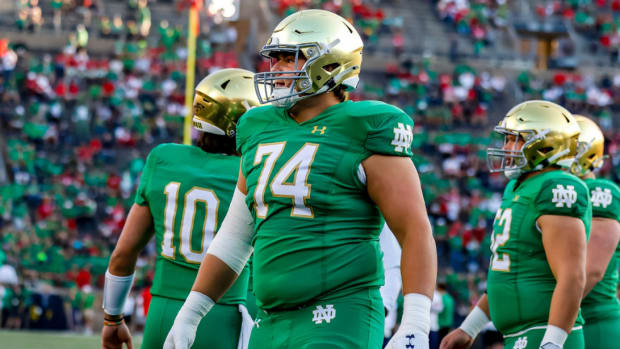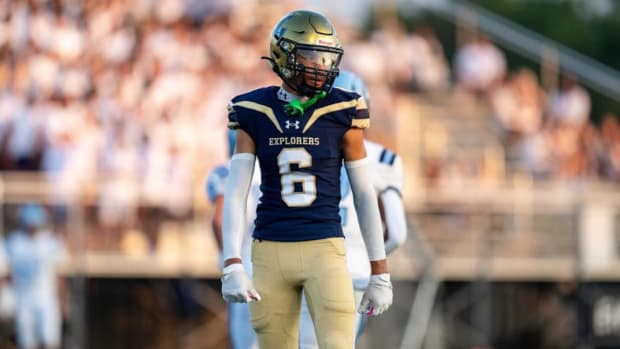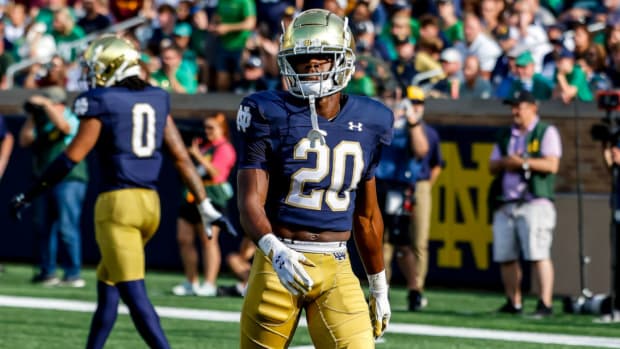Jack Swarbrick Talks Timelines, The Ireland Game and Fan Attendance
Being forced into a social distancing situation that involves the cancelation of spring sports and the on-campus spring semester hasn’t kept Notre Dame director of athletics Jack Swarbrick from being incredibly busy.
Swarbrick and the rest of the leadership at the University of Notre Dame must continue to monitor the latest with the COVID-19 outbreak and fears that followed as they look to make decisions on when students will return to campus, and those decisions will then dictate when sports resume.
Swarbrick spoke with ESPN’s Paul Finebaum about these decisions, when college football will return, and what it will look like. Despite his long background as a lawyer and in sports, Swarbrick and the rest of the college sports world is facing an unprecedented situation.
“When you get as old as I am … you’ve been through enough crises that you’ve got something to fall back on, there’s nothing here. There’s no frame of reference for this,” explained the Notre Dame director of athletics. “Like a lot of ADs I held meetings with my coaches three times in a day and a half when we were at the very start of this, and I had to contradict myself every six hours.
“The information changed so quickly and the sort of matrix for making decisions was shifting,” he continued. “One time we were talking about we’ll limit how many athletes can be in a facility and the next meeting we’re saying no one can be in the facility. It’s like nothing we’ve ever experienced.”
Swarbrick went onto say he’s in meetings non-stop as decisions are made at the university level and at the government level, and then the athletics department then must make decisions in kind. One recent decision involved a decision regarding summer school at Notre Dame.
“We’re going to start summer school in the same virtual environment we’re conducting second semester in. We’ll have a decision in mid-May as to whether or not the entire summer school will be that way, but certainly the first portion of it will be,” explained Swarbrick. “Our dorms won’t be open and our dining facilities won’t be open. … That starts to fill in the framework for you of what you can do as an athletic department. It’s not us making those decisions, and we shouldn’t be, let me be clear. We should be part of the broader university, or the broader city and state community of health experts saying no, we’re not going to open these facilities yet, and we have to figure out how to work around that.”
TIMELINE FOR A DECISION
Finebaum asked Swarbrick about when he thinks a decision will be made regarding college football resuming its activities. It is an incredibly challenging situation due to the unique circumstances of college football.
“I think there are two important parts to that question. The first is how is the decision to be made. Because we’re so different, obviously you know it better than anyone from any other sport entity in that you’ve got individual conferences, individual schools, who all have to come together in some form or fashion to figure this out,” Swarbrick stated. “Do we start the season if 60% of the members are in position to play but 40 aren’t b/c the virus is still to present in their states or their communities.
“So this is going to start with the health analysis, first and foremost, and that will be an analysis made by people who aren’t in college athletics and for the most part aren’t part of a university.”
If you follow the news and the science behind the current crisis you realize the virus has impacted different communities in very different ways, which further complicates the situation. The Notre Dame director of athletics does have an idea of the timeline for when things need to get rolling if the season is going to start on time.
In a recent interview, head football coach Brian Kelly mentioned July 1 as being that deadline, but Swarbrick expanded on why the deadlines are in place, and his is even sooner.
“I think we have to have a minimum of three weeks where we’re just conditioning before we even think about conducting a practice,” Swarbrick explained. “If you think you need those three weeks and at least three more weeks to prepare for a little football you probably have to know your going to have that month and a half, some version of a month and a half before that. So you start to get to a June 1 sort of window where you’re looking at hopefully getting some decisions made.”
ON PLAYING IN IRELAND
Not only is the start of the season a question for many, for Notre Dame the start of the season is even more complicated due to the fact it is supposed to start the season with a game in Dublin, Ireland.
Whether or not that game will be played in Ireland, or moved to another location, has yet to be made. Swarbrick did lay out the the framework for the decision making process.
“We don’t have any reason to think it won’t be, but there’s so much to happen,” he said of the Ireland game. “In the first instance it’ll be derivative of the decisions made by college football generally. That will be issue one for us. Issue two for us is how is Ireland doing, what’s its circumstance as we get closer to the game. Then issue three will be relative to the two schools, where are we, are we in session, were we able to prepare teams. So I think the three key elements will sort of cascade on each other.”
WILL THERE BE FOOTBALL WITHOUT FANS
Swarbrick was asked about the potential of playing games without fans. Swarbrick is open to the idea early in the season, but he does not believe it’s viable for an entire season.
“I think potentially I could see it starting that way, maybe you say we’re going to play a game or two that way, I don’t think you can conduct a season that way,” Swarbrick said. “I think spectators are too central to the experience, I don’t think that would be fair to our students. I don’t like the idea of our game day stadium just being television studios. They need to be alive with people in attendance. Might be able to do a little bit of it, but it can’t be the model for a season.”
Swarbrick concluded with this statement:
“I think it’s really important that college football gets back, because I think of all it contributes to the fabric of this country, and I hope we can do it.”
Be sure to stay locked into Irish Breakdown all the time!
Join the Irish Breakdown community!
Subscribe to the Irish Breakdown podcast on iTunes.
Follow me on twitter: @CoachD178
